Don’t we all crave for a tight hug sometimes to melt away our sorrows? Or to share the excitement we feel in our body?
Hugs are magical. The simple act of hugging has been scientifically proven to have lots of benefits.
It’s for the same reason numerous studies suggest the benefits of skin-to-skin touch due to which mothers are recommended to have the skin-to-skin contact immediately after birth.
If you do not have the habit of hugging your kids every day, here is why we should hug our kids more.
6 REASONS WHY HUGGING YOUR CHILD IS IMPORTANT
1. HUGGING RELEASES OXYTOCIN
Oxytocin, a hormone released by the pituitary gland, is often called the ‘cuddle hormone” or ‘love hormone’ for a reason.
This hormone is released in our body when we hug, snuggle, or bond in any way. Oxytocin helps us feel loved and connected.
Have you felt a surging love for your baby when he or she is drinking your milk?
When babies suckle at their mother’s breast, the stimulation releases oxytocin which signals the body to release milk. It also helps to create a strong bond between the child and the mother.
Oxytocin has many benefits which include helping to build trust, relieving pain, improved self-esteem, and optimism.
Therefore, hugging helps kids to feel loved and special. As a result, it helps to improve their self-worth too.
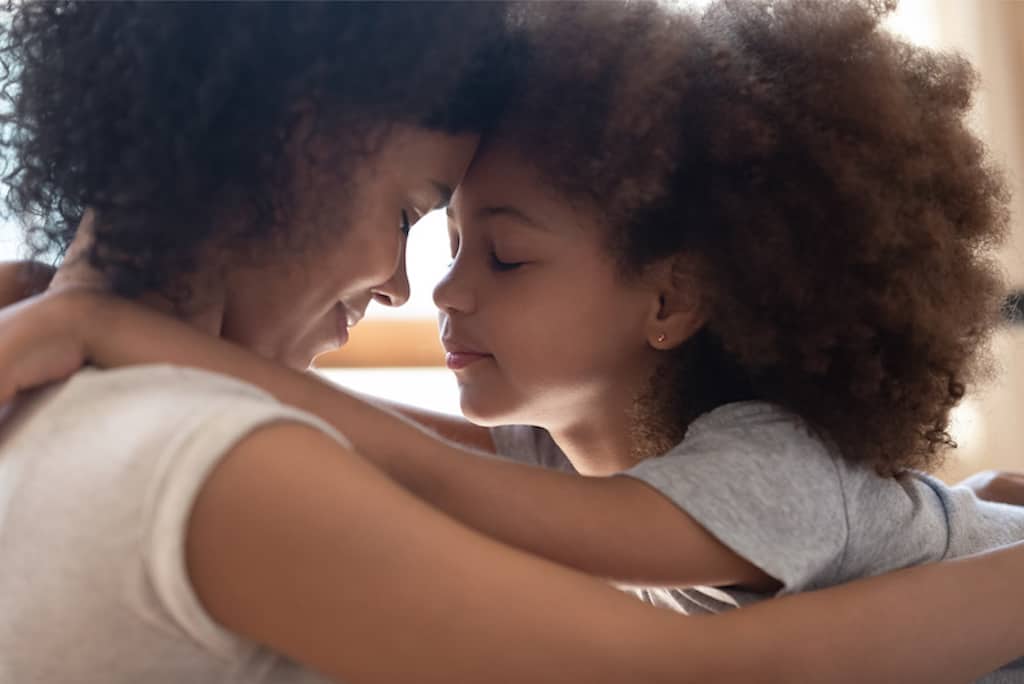
2. HUGGING HELPS TO IMPROVE EMOTIONAL HEALTH
Hugging helps to reduce stress. Oxytocin is a feel-good hormone when released, makes you feel good, and builds trust.
In addition to this, hugging helps to reduce cortisol, which is a hormone released when we are stressed.
For this reason, hugging helps to calm down a crying child. Next time, when your child throws a tantrum, try giving him/her a long hug.
I have experienced this many times. My elder daughter is very sensitive and when she is angry and feels out of control, I sometimes give her a hug.
It immediately helps her to release her anger through tears and she feels relaxed after sobbing for some time.
It is also good for me too because as a sensitive person myself, I can absorb other people’s emotions quickly. So hugging helps me to release my own frustration before it escalates into anger or yelling.
It doesn’t mean you need to agree with their misbehaviors. Sometimes, kids need empathy and understanding even though your answer is still a NO. In such times, if appropriate, you can give a hug to let kids know you are on their side no matter what.
3. HUGGING BOOSTS IMMUNITY
We know how stress plays a role in our health. Stress has been linked to so many of the lifestyle diseases we have today, including cancer.
Hugging not only helps in reducing stress but also to boost immunity.
In a study conducted by Sheldon Cohen, the Robert E. Doherty University Professor of Psychology, they tested whether hugs could act as a form of social support and prevent stressed people from getting sick.
The results showed that perceived social support reduced the risk of infection associated with experiencing conflicts. Hugs were responsible for one-third of the protective effect of social support. Among infected participants, greater perceived social support and more frequent hugs both resulted in less severe illness symptoms whether or not they experienced conflicts.
Cohen says that an increased number of hugs help in reducing the effects of stress and helps to protect us from infections.
Also, serotonin is one of the happy chemicals released while hugging and it has been shown to boost the immune system.
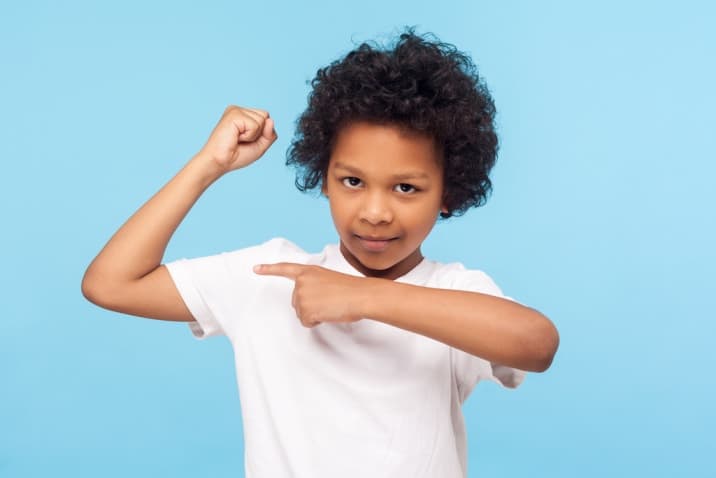
4. HUGGING BOOSTS HAPPINESS
Serotonin not only helps to boost the immune system but also improves our mood. It also helps to regulate anxiety and happiness. Low levels of serotonin have been thought to have a link with depression even though it is not proved yet.
Isn’t it wonderful that just a simple act of hugging our kids can make them happy and elevate their mood?
Not only serotonin is linked to altering our mood, but it is also involved in numerous other functions like controlling sleep, healing wounds, bowel movements, bone health, etc.
So if you see your kid in low energy or in a depressed mood, don’t hesitate to ask, “Would you like a hug?”. A hug could diminish his/her worries.
5. HUGGING IMPROVES PARENT-CHILD RELATIONSHIP
Hugging is important in all relationships. As stated above, the oxytocin released while hugging increases love and trust between the parent and kids.
It helps to improve intimacy and improves connection. And we all know how connection is an important factor in parenting. Even if you are busy, taking some seconds out to give a long tight hug can improve the connection with your kids.
And when your connection is strong, your relationship is strong.
And also according to Dr. Gary Chapman, physical touch is one of the five love languages of people.
The kids who express love through physical touch or the ones who are in your physical space more may be expressing physical touch as the most prominent love language.
Even though we should express love in all five languages, we should express love more through “their” love language.
So hug your kids more if his/her love language is physical touch. Physical touch can also include a rub on the cheek, a pat on the back, etc.

6. HUGS HELP KIDS TO THRIVE
In the book Creating Loving Attachments, authors Daniel Hughes and Kim Golding, talk about how physical touch is crucial for the overall development of kids.
Quoting from the book,
Frederick II was a Holy Roman emperor in the thirteenth century. He wanted to find out what the natural language of childhood is. For this, he employed a few wet nurses to look after a group of infants without cuddling, talking, or singing to them.
The infants were cared for physically, but they were not nurtured with love.
Unfortunately, all the infants died one after the other. Though sounds like a cruel experiment to me, this shows how much humans need physical touch and other forms of love to thrive.
Lack of nurture has also shown to affect children’s growth and well-being even when they are physically taken care of.
THE EFFECTS OF NOT BEING HUGGED AS A CHILD
Studies done on children who grew up in Eastern European orphanages show that those who didn’t receive adequate physical and emotional caring had long term neurobiological effects.
Though the effects may not linger long term for everyone, in this study, the lack of physical touch was shown to have a long-lasting deficit in the levels of two hormones oxytocin and vasopressin.
Even after the kids were removed from the orphanage and placed in loving families, the deficits persisted.
These two hormones are important in the ability to form social bonds. And this can explain why early neglect is the cause of the inability to form emotional attachments in adults.
Children who grew up without physical affection may face
- Mental health problems such as depression and anxiety
- Stress
- Loneliness
- More tantrums because they exhibit their craving for attachment through negative behaviors
- Low self-esteem and self-worth
- They become less resilient
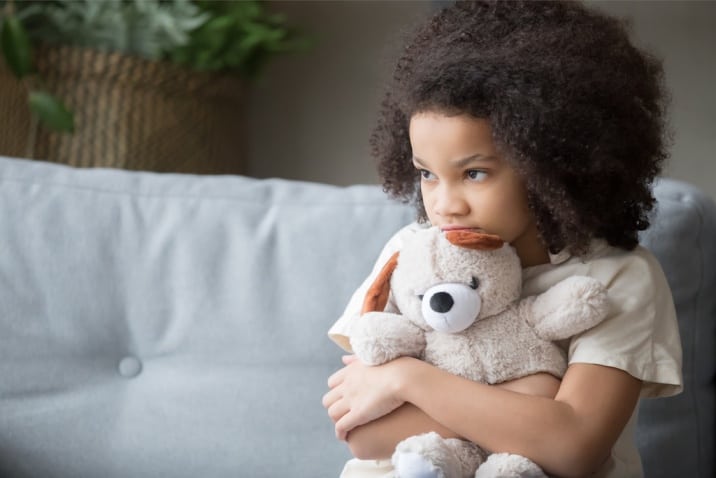
HOW MANY HUGS DO KIDS NEED PER DAY?
Though we cannot keep a count every day, according to Virginia Satir, a respected family therapist,
We need 4 hugs a day for survival. We need 8 hugs a day for maintenance. We need 12 hugs a day for growth.
You can incorporate hugs in your day as routines or family rituals. The first hug can be given out when they wake up in the morning. The next ones, when they go to school and when they come back.
In my family, we recently started the family ritual of group hugging at night and it results in lots of giggles, love, and laughter before sleeping. I think it can be heartwarming for everyone to go to sleep feeling happy and loved.
The length of hugs matters too. 20 seconds seem to be the sweet spot for reaping the full benefits of hugging by getting your brain to release oxytocin.
This may seem like a long time, but as you must have known by now the benefits are huge too.
If you find this post helpful, please take a moment to PIN and SHARE!
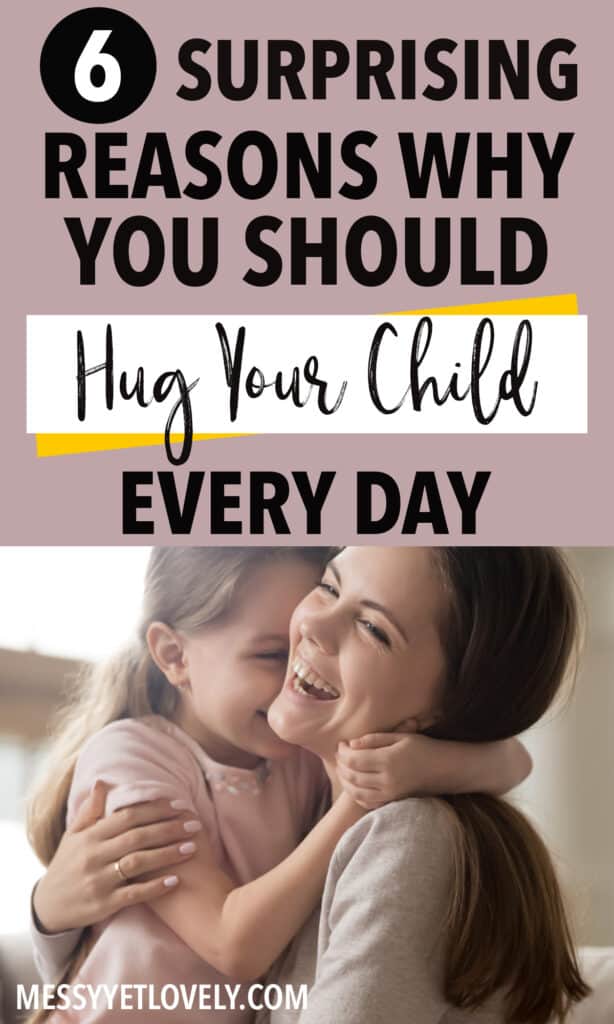
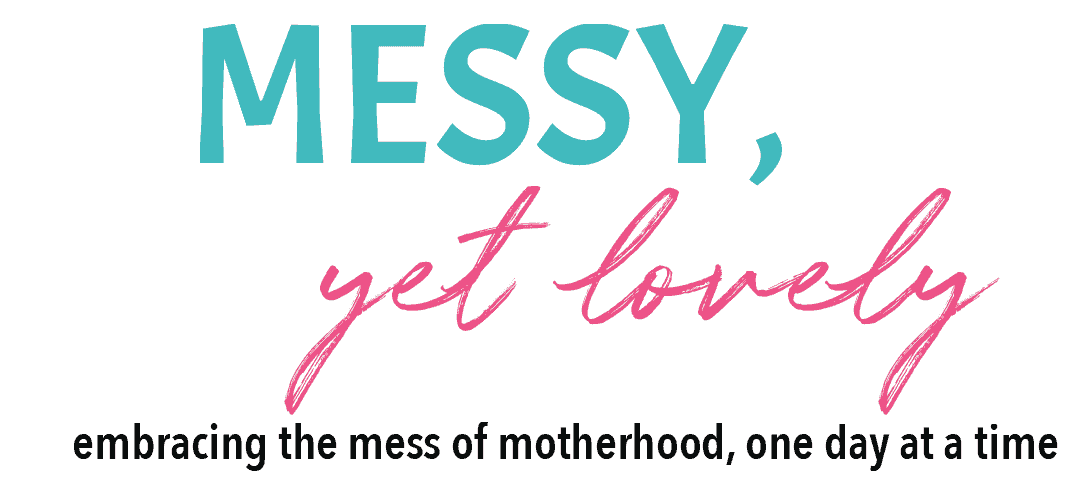
Michelle
Saturday 23rd of December 2023
This is so interesting and I feel like it even applies to adults.
Waheeda
Tuesday 26th of March 2024
So true!